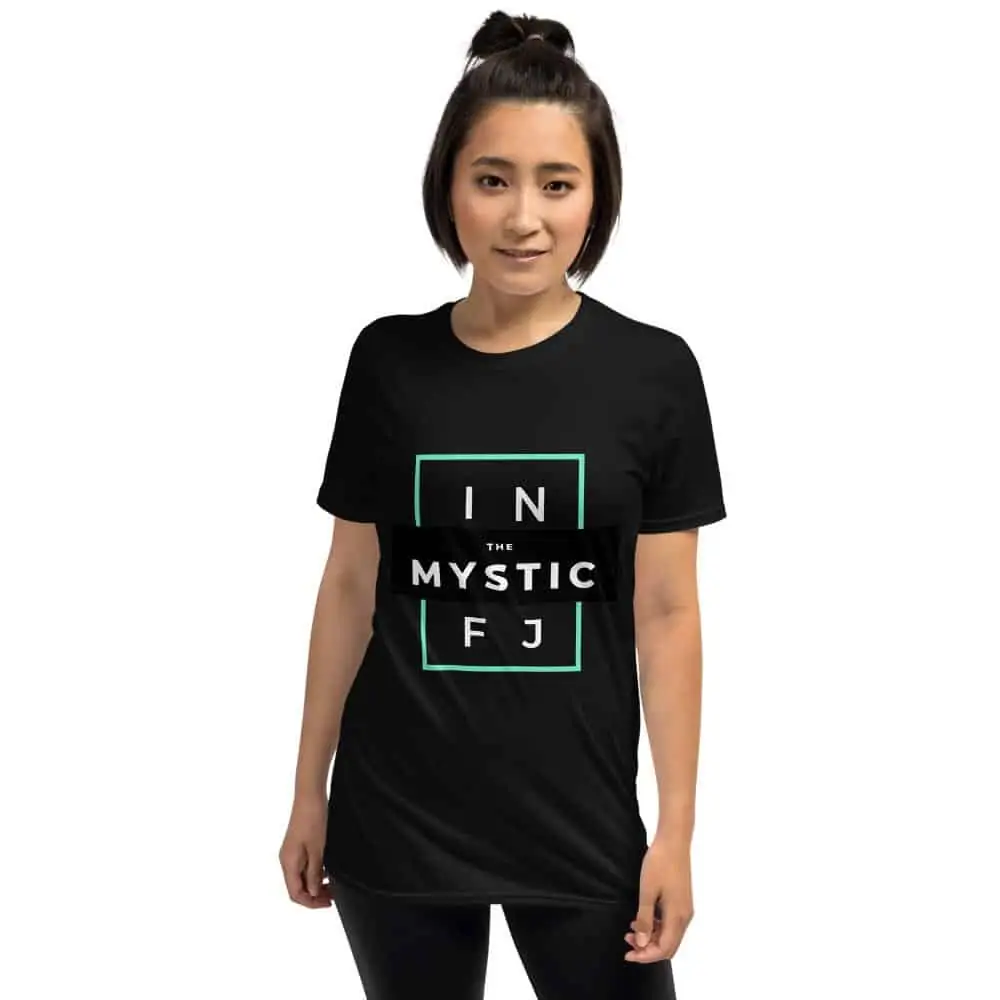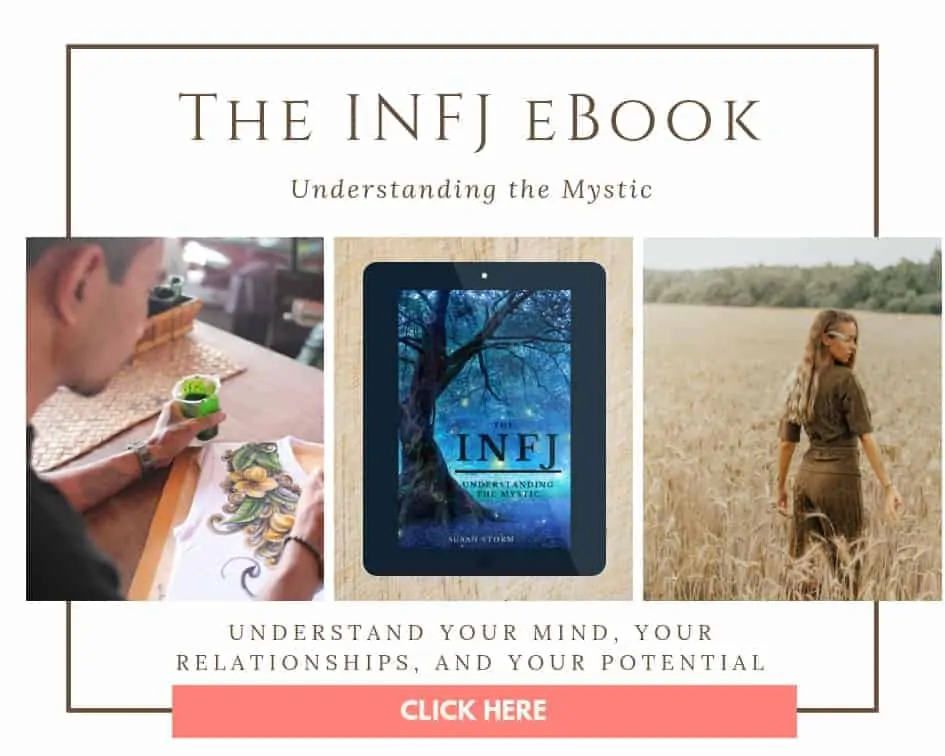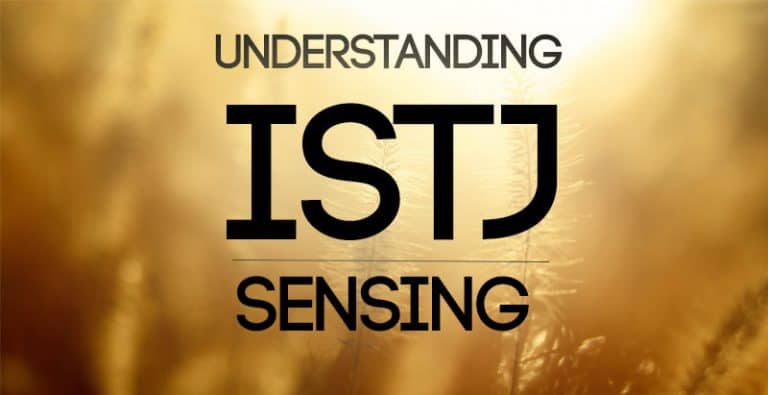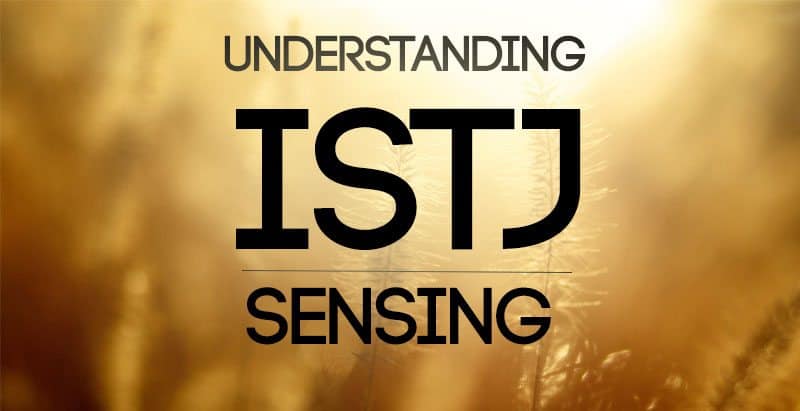What Makes INFJs Dangerous
“Often underestimated, INFJs have a strong sense of the future and what is likely to happen. They easily see how situations will unfold and how people will be affected. They can forge empathic connections with others and understand how they are feeling on a deep, intuitive level. While usually these talents are used for good, if you betray an INFJ or hurt someone they love, they can be experts in psychological warfare. They tend to know exactly the right words to say to get underneath someone’s skin or the exact scenarios to put them on edge. They can mentally unhinge people as a way of getting them to own up for their mistakes and take responsibility. Sometimes this ability can be used in a healthy way, and other times it can be destructive.” – Susan Storm – Here’s What Makes You Dangerous, Based On Your Personality type
If you’ve read very much about INFJs, chances are you hear about how gentle, compassionate, and accepting they are. The “nice” INFJ is usually what you’ll find described in type descriptions. This INFJ cares deeply, puts other people’s needs ahead of their own, and listens patiently to the problems and struggles of their friends.

But are INFJs really as nice as type descriptions imply? Or is there a hidden dangerous side lurking underneath the gentle exterior?
That’s what we’ll be exploring in today’s article
Table of contents
- A Quick Glance at the INFJ Personality Type
- A Look at the INFJ’s Mind – Starting with Intuition
- The INFJ’s Feeling Side
- The INFJ’s Thinking Side
- The INFJ’s Sensing Side
- But What Does All This Mean? Why Does This Make INFJs Dangerous?
- #1 – The Psychological Manipulator
- #2 – Believing “The End Justifies the Means”
- #3 – The Codependent
- #4 – The Hidden Risk-Taker
- #5 – The Detached Critic
Estimated reading time: 12 minutes
Not sure what your personality type is? Take our new personality questionnaire here. Or you can take the official MBTI® here.
This article contains affiliate links to books on Amazon. If you purchase one of these books, I get a small kickback that I can use to pay for hosting and other demands of this site. I only recommend books I love.
A Quick Glance at the INFJ Personality Type
Most INFJs keep a low profile. As reserved and introspective types, they can feel overwhelmed by a lot of interaction with people. When they do spend time with others they are typically accepting, attentive, and empathetic. Called “The Counselors” by psychologist David Keirsey, INFJs have a knack for realizing the potential of others and guiding them towards personal fulfillment. Keirsey states of INFJs, “These seclusive and friendly people are complicated themselves, and so can understand and deal with complex ethical issues and with deeply troubled individuals.”
Yet while INFJs may appear all tenderness and warmth on the outside, they have a much more intense and analytical side on the inside. These creative dreamers enjoy generating endless streams of possibilities and ideas. Their inner world is often fertile with images, symbols, insights, and visions of the future. Yet even though INFJs tend to be occupied with morale in group settings, they have an inner logical side that likes to theorize, invent, and question.
INFJs are a unique blend of empathetic, strategic, analytical, and visionary. This toolbox of abilities can be wielded for good or bad depending on their long-term goals.
A Look at the INFJ’s Mind – Starting with Intuition
INFJs are Intuitives first and foremost. Their dominant mental function is called Introverted Intuition, or “Ni” for short. This means that INFJs shine brightest when they are exploring predictions, ideas, patterns, and underlying meanings. They have a unique capacity to see how events will unfold and a tendency to be visionary or even prophetic.
“Introverted Intuitives have a tendency to fill the roles of prophets and visionary leaders to inspire cultural change toward new models of what can be. They have a talent for teaching a deeper level of understanding and connecting society to the intangible, metaphysical world.” – Mark Hunziker and Leona Haas, Building Blocks of Personality Type
To the INFJ, concepts, insights, visions, and ideas drive them forward. They often have a deep inner drive and sense of purpose, sometimes for grand schemes like influencing the political world, or sometimes for smaller visions, like improving the lives of their children. INFJs are happiest in quiet places where they can ponder and imagine and analyze. They enjoy connecting everyday occurrences or thoughts to the bigger picture in order to understand a deeper meaning.
The INFJ’s Feeling Side
INFJs are also feeling types in the Myers-Briggs® system. That said, feeling is not the primary source of their energy and inspiration. Feeling is what INFJs tap into when they interact with others. This is the side of the INFJ you’re likely to see first.
INFJs prioritize the feelings of people a great deal. In fact, they often absorb other people’s feelings in real-time, responding to them and trying to create an overall atmosphere of harmony.
“Because of their strong ability to take into themselves the feelings of others, Counselors (INFJs) can be hurt rather easily by those around them, which, perhaps, is one reason why they tend to be private people, quietly withdrawing from human contact…..they have mysterious, intricately woven personalities which sometimes puzzle even them.” – David Keirsey, Please Understand Me
With extremely close friends and loved ones, INFJs can be very expressive, engaging, and passionate. They will share their deepest feelings and may struggle to keep their stronger emotions caged inside. However, until a deep level of trust has been reached, they tend to frame conversations so that the other person is doing the majority of the talking and sharing (unless that seems to be disrupting the overall harmony/comfort of the other individual).
Because INFJs are so tapped into other people’s feelings, it can be easy for them to pick up on what other people are going through emotionally. And because they are pairing this feeling side with their pattern-spotting intuition, they can also spot hidden intentions and motives fairly quickly.
The INFJ’s Thinking Side
After feeling, comes the INFJ’s analytical, logical side. INFJs often flip-flop between thinking and feeling, with thinking being an inner voice and feeling being the outer voice you’ll hear most often. The INFJ’s thinking side is focused on creating a logical taxonomy or framework for how everything connects and fits together. INFJs enjoy understanding the principles behind things and applying logical analysis to concepts, ideas, or relationships. Because of this, INFJs often click well with Thinking-Perceiving types in the Myers-Briggs® system.
Even though INFJs have an analytical, logical side to themselves, they’ll often revert to their feeling side when they have to make decisions. More than anything, healthy INFJs want to make decisions that will benefit people. They want to find consensus, achieve good morale, and improve the lives of others. And sometimes for the INFJ this means doing what’s best for people even if it’s not logically the most straightforward thing to do.
The INFJ’s Sensing Side
The biggest weakness of the INFJ lies in their sensing side. INFJs are intuitives first, which means that they are sensors last. The world of details and tangible facts can be overwhelming and dull to the INFJ. It can be difficult for them to hold onto facts relating to things. Because INFJs are interested in ideas and concepts relating to people (Intuition and Feeling) the world of details and facts relating to things is usually of very little interest. This natural weakness can show up in a variety of ways. They may constantly lose things, get lost while driving, or get frustrated when they have to complete nitty-gritty detailed tasks that don’t have any interpersonal benefit. INFJs may also ignore facts or details that don’t align with their vision or hunch about how things “should” be.
But What Does All This Mean? Why Does This Make INFJs Dangerous?
There are several different ways that INFJs can become dangerous. So let’s take a look at them one-at-a-time.
#1 – The Psychological Manipulator
Because INFJs are equipped to predict and foresee, they can often create highly strategic plans. It’s easy for an INFJ to step out of a situation and see the big picture. On top of this, INFJs are gifted at reading people’s emotional states and spotting their underlying motivations.
How can this make INFJs Dangerous?
Well, if an INFJ has a particular motive, they can work tirelessly and discretely to bring their goals to fruition. Because they can read people so well, they can be very convincing – tapping into other people’s motivations and unmet needs to entice them to take action or think in a certain way. You can see this in the INFJ villain R’As Al Ghul, who longs for a utopian world and manipulates people into joining him. (Read more here: INFJ, INFP, ENFJ and ENFP villains)
In a healthy way, INFJs can use their abilities to motivate people towards healthy and positive goals. They can tap into their feelings and show empathy, using their intuition to paint a vivid and beautiful picture of hope and promise. Healthy INFJs can be deeply motivating, insightful, and inspiring because of their ability to see a future beyond the present and to know how people will be emotionally impacted.
#2 – Believing “The End Justifies the Means”
Because INFJs are Introverted Intuitive dominant types, they tend to develop long-range goals and dreams for the future. If they’re not careful, they can put everything on the line for those long-term dreams. They may even take drastic steps to achieve their goals, believing that the overall benefit is worth more than the short-term detriments.
Sometimes this can be negative – they may ignore their moral compass in order to stay “on task” or achieve their plan. This is more likely to happen when INFJs are repressing their feeling side and losing touch with their inner values and ethics. They may also put their long-term goals above their immediate physical needs, becoming exhausted, malnourished, or physically depleted as a result.
Sometimes this ability can be positive. INFJs may be able to ignore minor setbacks to focus on their long-term goals. They may be able to deal with short-term frustrations knowing that, in the end, all their hard work will make a difference.
#3 – The Codependent
Unhealthy INFJs can get so wrapped up in other people’s feelings that they lose themselves in the process. An unhealthy form of codependency can show up when INFJs become too attached to the feelings and emotions of other people.
Because INFJs naturally absorb other people’s emotions it’s natural for them to try to “manage” those emotions. They can get into the habit of trying to please everyone, take care of everyone’s needs, or create a picture-perfect harmonious atmosphere so that they can have inner peace.
The downside to this is that INFJs can lose touch with who they are and dismantle other people’s intrinsic motivations. They create or enter into codependent relationships where they feel they have to control everything at all times. If something is wrong they believe it’s their fault. They can’t tolerate unhappiness in others and will jump in to “save” people before they have a chance to try to save themselves. Resentment, bitterness, exhaustion, and anxiety are the results of this kind of codependency.
As an INFJ who has struggled with codependency myself, I’d definitely suggest reading Codependent No More by Melody Beattie.
It’s important for INFJs to realize that they are not responsible for other people’s feelings. In fact, they can do more harm than good by trying to manage other people’s emotions and fix things for them. Empathy and consideration are positive things, but control, martyrdom, and people-pleasing behaviors can be dangerous and harmful.
#4 – The Hidden Risk-Taker
If an INFJ gets really, REALLY stressed out they can fall into the grip of their inferior sensing side. When this happens, they become uncharacteristically short-sighted, reckless, and impulsive.
Some INFJs channel this grip stress into harmless activities like cleaning, going for a run, or attacking a punching bag. Yet many others go the unhealthy route; they splurge on an impulsive risk or adventure, they bungee jump from towering heights, binge eat, drink, or take off in their car with no destination and no plan of returning.
Grip stress can be dangerous for INFJs, and potentially the people around them. During these spurts of increased adrenaline INFJs are typically less tactful, empathetic, or concerned with the long-term impacts of what they are doing.
#5 – The Detached Critic
INFJs are typically warm, empathetic individuals. They dislike conflict and will go above and beyond to take care of the people they love. At the same time, even INFJs have a limit, and it can show up faster than some people expect.
INFJs are introverts first and foremost. Their mind is stimulated by the inner world. The feeling side of the INFJ is extroverted in direction. While this is what the world sees from them, it’s not their inner core. The introverted functions of the INFJ are Introverted Intuition and Introverted Thinking. While on the outside, INFJs may present a warm, friendly demeanor, their internal world can be far more analytical and detached, quietly observing and developing insights and deductions.
When INFJs get into a Ni-Ti loop, or when they simply stop caring about what others think, they can shut off that warm, friendly demeanor and become much more direct, concise, and aloof. Suddenly they can overwhelm someone with a critical analysis of all their actions, as well as a roadmap for how they’re going to fail in the future. Or they may simply “shut off” and become quiet and stoic, unresponsive to attempts for warmth or generosity. When they do speak, they may blurt out cutting sarcastic remarks or snarky one-liners just to get people off their back.
Sometimes becoming the detached critic is a healthy thing for an INFJ. Manipulators and fair-weather friends can take their toll, and it’s sometimes necessary for INFJs to stop reacting and to listen to their logical side rather than always taking care of other people’s feelings.
Sometimes becoming the detached critic isn’t healthy, particularly if an INFJ is in a loop. When it isn’t healthy, INFJs can damage their relationships and become too one-sided, losing touch with their crucial feeling side.
Not all INFJs are codependent, detached critics, or dangerous in any way. But being aware of these possibilities can help you to understand yourself better. We all have times when we become “dangerous,” either for good reasons or bad. Knowing yourself is always an important way to be in the know on what’s happening inside your mind and why it’s happening.

What Are Your Thoughts?
Do you have any insights or experiences to share with other readers? Leave a comment to talk with other INFJs! Not sure if you’re an INFJ or need help narrowing down your best-fit personality type? Book a type clarification session with me!
Find out more about your personality type in our eBooks, Discovering You: Unlocking the Power of Personality Type, The INFJ – Understanding the Mystic, and The INFP – Understanding the Dreamer. You can also connect with me via Facebook, Instagram, or Twitter!
Other Articles You Might Enjoy:
24 Signs You’re an INFJ, the Mystic Personality Type
12 Amazing Fictional INFJ Characters















As a visible minority growing up in a violent city in the 80s and 90s in Canada, l had quite a few bullies and little physical protection, so psychological warfare was my weapon of choice. My long term safety depended on it as enemies were effectively neutralized once I sharpened my skills.
When I got older, and realized the long term damage left to my former bullies, softer interventions became available to me and allowed me to get off the radar from potential threats.
It’s interesting to read about the complexities of INFJs and their strategies on neutralizing physical threats without physical violence. The mind truly is an effective weapon when wired for harmony and empathy.
Susan, A spot on presentation. I enjoyed it much and learned some things I wasn’t fully aware of.
Thank you Harry!!
Awesome, scarily accurate article!
As a fellow INFJ, I am always happy to read more about my unique self that mystifies even me 😉
I very much relate to the constant losing of stuff, i.e. pencils and small whatnot. Though it`s probably more misplacing in my case… it really does feel like I lose stuff! (…and my mind 😉
So… thank you for the grand reassurance that I`m not going crazy!
Plus, I know a wonderful man who I`m pretty doggone sure is an INFJ, so I also like reading the INFJ-based articles to try and understand HIS mind a wee bit more 😉
In case anyone`s wondering: his name is John Dye (the actor) ~ a kind, generous, loving man who was an inspiring soul, and who has left an equally inspiring legacy of love!
This opened my eyes wide. This explains all the parts of me that confused me. Now I can work to be the good person I know I really am
I’m in a Ni-Ti loop right now and can’t seem to get out of it
Hi,
Not sure of your situation now, hope you are fine now.
Shocking Shocking but unfortunatley true!!! Specially the sensing peoples emossions as if its their own…
Very accurate, informative and well written. I can second the idea we can struggle with codependency and the recommendation of Beattie’s book. That book saved my life in my early 30’s, no exaggeration. #5, The Detached Critic. If I get there with you (and yes it comes on with little warning) you won’t be having a good day and you might cry. Not proud of some of these moments when my feels come back in charge but some people really want you to do it so I oblige. Just wanted to say, reading the articles and comments of INFJ’s is always worth it. Thanks for sharing everyone!
Hello, thanks for a very interesting article…
I realized that I have fallen victim to all those bad sides except for the manipulative one. I just recently started reading about my MBI but I wasn’t convinced enough. Now after reading you,I can see myself more clearly in this personality.
In my teens I was really overwhelmed and I detached myself and that I think made me into a more logical thinker, (in the past I used to loose a lot of stuff and even when I tried to concentrate I would get lost in places where I have been a lot of times haha)
My detachment began because my mother was the type of person who always talks but never listens and I was her listener all my childhood until I had enough. I used to be a lovely an caring person but all of a sudden I was cold and didn’t care … I was harsh to her and my fatger … for a while I was almost sad because of that, I felt kinda guilty but I also thought it was necesary and I couldn’t feel the same as before at least not for quite a lot of time.
Also I tend to be codependent in my love relationships, when I’m in love I can’t control my emotions and try to please my partner, becausr even the smallest conflict can feel like I’m dying ( and for some reason my ex bf have been jealous types that made me even more of an introvert)
I have also gone a little crazy when I’m overwhelmed like doing things I previously thought I would never do. I started to drink a lot when I was in High Shool, I used to be an honor student and then I stopped going to school for a week, I skipped class and well Sometimes it’s like there is 2 people inside me but I mostly just damage myself.
Also I am very pessimistic and get anxious easily. I kinda preffer when I am more detached because my feelings don’t get in my way to get things done. My feelings are sometimes so strong that are a burden…
Anyway I will definitely read some of those books you recommended because I know I need to be better.
Your natural self was repressed so badly….I know that feeling had similar experiences. I found the more I understand myself and act like myself …the happier I am. And it’s not the temporary high that extreme behaviors give. It’s a lasting contentment, feeling relaxed…I am who I am, and I don’t need to hide it anymore
I’m married to an INFJ and I see all those qualities and more. Birth order and home environment have shaped her individual personality. She’s very passionate about our volunteer work, but at times does not want to face the fact that everyone involved in the work is not good. At the same time being able to “read the room”, so to speak, and pick up on non-verbal cues quickly. It get’s a little frustrating when you know they are capable of noticing things and do notice everything tangible and that involves how others feel but repress it. She also always uses those non-verbal cues and signals knowing how they can be interpreted to manipulate or correct/punish others. They are very good at noticing the unspoken psychological rules people follow and can quickly tap into them to take control.
Wow, I was amazed to read about the danger of manipulation. I have long had the ability to “manipulate” others’ thinking and feelings, and I’ve always only consciously used it for good. For example, if I see someone at work has unfairly or improperly judged another person negatively, I’m able to gently correct their views of that person without them realizing I’m doing it. I’m good at planting seeds and ideas in others, for example better ways to handle things. One person once told me that I make a good leader because I’m able to get people to do things and get them to think they came up with the idea themselves (I sense another very perceptive person there). I do tend to do that to people who are higher up than me, so they can implement positive ideas that I myself don’t have the power to enforce at my level. It makes me feel powerful and comes with the responsibility to use it benevolently. But when, a while back, I tried to share that ability with my husband, I got stuck because it was hard to describe it in a positive way, because the word “manipulation” sounds awful and, well, dangerous. This ability is one I’ll be keeping to myself.
Use the word persuasion instead. It’s less malevolent sounding, also if you can’t talk about manipulation with your husband, personally I think something is wrong, you should be able ot without things getting bad
Anyone else feel like infjs are being sought out or documented ? Not a paranoid shut in
I can relate to the co-dependency tendency. Most of the time when around people, I can feel too much. It bothers me when I know another person is unhappy. I want to fix it. I have read the book you suggested and it helped. I’m 70 yrs old now, it’s taken me a long time to learn when to let things be. I’m still learning.
Impulsive actions/reactions are devastating and truly lethal in some ‘sick’ INFJ-Ts.